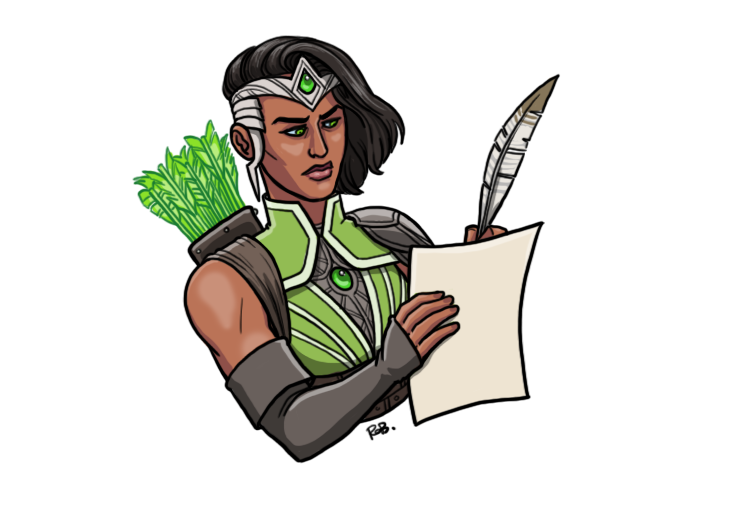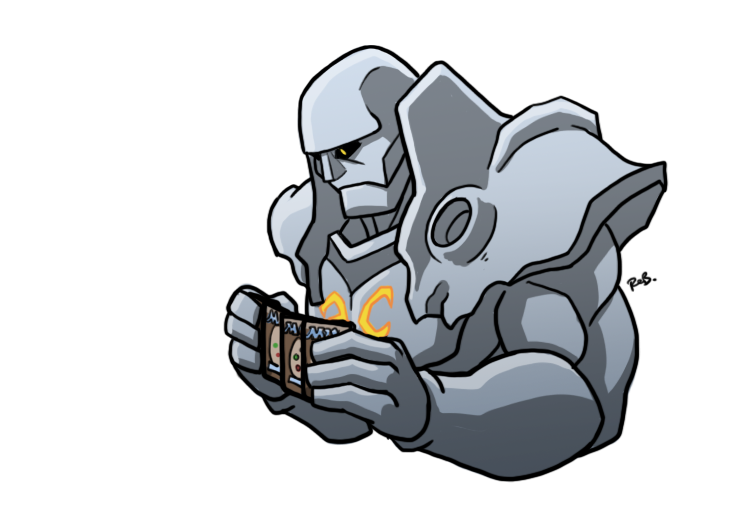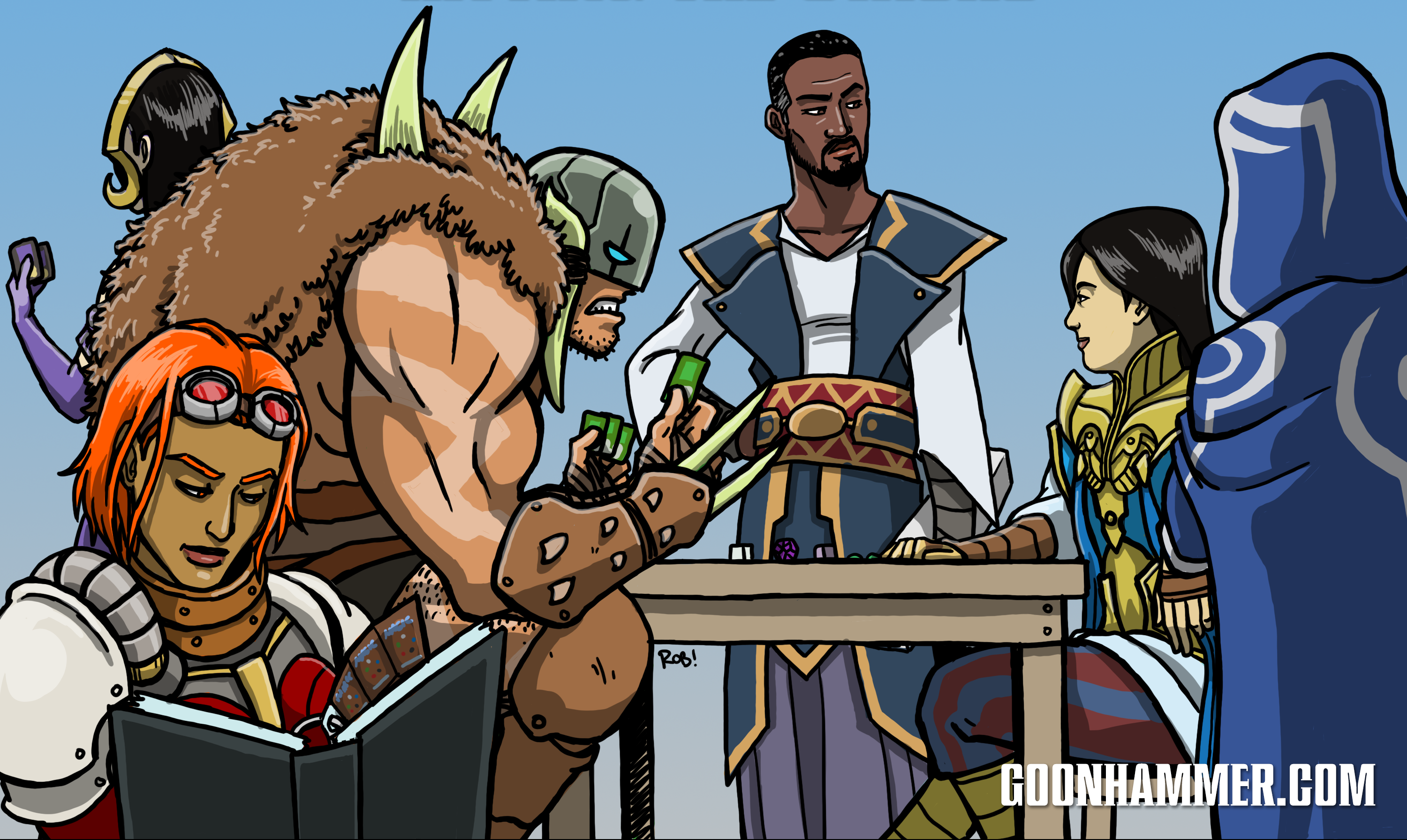Ahoy Hoy, my name is David Inglis I am from the UK and have been playing MTG since Scars Of Mirrodin. So far, I have a World Magic Cup Top 4, some GP Day 2s and a bunch of PPTQ Wins under my belt. I recently picked up Magic The Gathering Online and some of you might have seen me there under the unimaginative username “Dinglis.” I’ve joined the Goonhammer team to write about Magic on an ongoing basis – check back every Wednesday for non-Commander Magic content moving forward!
Today I’m going to be talking about a few key tips to improve your game when it comes to playing Magic, my main interest in Magic content is the theory behind the game and discussing the mental health and attitudes to the game.
Improving is one of the hardest things in life. It’s something everyone says they want to do but in reality I find that people think they should want to improve because that’s “correct.” I’ve spent many years in gaming communities; some games like MTG I am very passionate and committed to while others like Overwatch I fire up when I want to reach out and heal someone. You don’t have to be the best at every game you play, or even good at all of them. However if you want to improve at Magic I’m here to give you some tips that have worked for me to get this far.

1. Work out what You Want to Achieve
Quantified goals can be really difficult to discuss because Magic has tons of variance you can spend all your time testing and still just get crushed at a tournament for a number of reasons. So I recommend goals that stay away from those kinds of fixed results – they’re easy to measure, but not particularly great for incremental growth and achievement. If I go into an event and feel my deck was correctly constructed and my testing was good then that’s good enough for me. Magic is a big, long grind and making the game work for you is a key part of staying mentally healthy.
Let’s take a common goal and work out how we could approach it: Let’s say you want to make Mythic on Arena – how would we go about achieving that? The most obvious approach is just “to keep grinding out games until it happens” and that might work but I would recommend working out a more thoughtful way to accomplish your goal. Think about how long it will take, what issues could happen – spend some time working out the logistics, what you want and whether there are other ways to get there. Going back to that “grinding to Mythic” strategy on Arena – the most common issue in grinding is that we can get tilted playing lots and lots of games at once, which can cause them all to blur together. This makes it harder to take information down, and as a result less likely that we’ll actually improve. So this is how I would approach the problem:
A) To avoid tilting off I stop playing and take a break if I get two losses in a row.
B) I keep a notepad++ document of all the notes from testing. Cards that worked well, notes on improvement, etc.
C) If I was testing a new deck or idea I would put more emphasis on these notes.
D) I’d plan to watch some content and read some articles to see what other people are doing – essentially doing my homework
The goal here is to work smarter, not harder, where that’s possible.
2. Networking
It’s always about who you know and friends are such an important part of life. Networking is one of those tedious life skills that really translates well over to what matters most in life: Magic, obviously. While competitive Magic and most formats are a 1v1 game, reaching out and speaking to others is a great way to find people with similar goals to you – and it’s just a good experience besides. People often want to help each other and having friends who can share your pain and experience is a huge plus. Also, Magic cards are expensive so having a group that you can pool cards with and lend cards to each other with is a really nice thing to do. You want to surround yourself with people who share your goals and ambitions (Rob: We covered some of this as well in our Getting Started with Competitive Magic article – I cannot agree more).
While I’m not saying you should go knocking on the door of the best players in town asking to play everyday, engaging in the community is a great way to improve your game. It can be scary to engage but everyone starts from zero in magic and people are often willing to share experiences and ideas and thoughts, I think personally that is one of the things I have missed most about the game is the fact that the stories are really what make the game the most fun.

3. Put down the sideboard guides
Sideboard guides are very addictive. It’s very easy to have someone do all your work for you. Sideboarding is a huge part of Magic and understanding how to do it well is really important. While sometimes it’s good just to pick up a sideboard guide to learn the deck I think for long-term improvement you need to move away from guides and cheat sheets and try and work things out for yourself. Even if you have committed to never building a deck by yourself you still have to deckbuild on your own when you are making sideboarding decisions. Also if you just follow a sideboard guide you become exploitable as anyone who is serious about preparing will have read that sideboard guide you have. This isn’t to say “go off the rails and do random things” but make sure you understand what you are doing when you build and use your sideboard and why you’re making the decisions you’re making and that will go a long way.
Also: Sideboard more in limited. One of the greatest players in the game said that they regularly sideboard 3-5 cards in each game of limited.
4. Mix It Up
I used to be a one-trick player: I would have my Unhinged Islands, counterspells, card draw, and board sweepers sleeved up and ready to go; this meant when those cards and the decks using them were good I was doing really well and when they weren’t I was doing badly. Basically I would have my deck idea ready before the event had even been announced. It’s really hard being a one-trick player but really easy to fall into when you find something you’re comfortable with and I would highly highly recommend trying different play styles and even formats. While just picking up a Modern deck isn’t viable for most people, try proxying one up or switching decks with people at FNM if they are willing to do so. Another method I like is playing a format called Battlebox — which I will explore in depth in a future article — but the basic idea behind Battlebox is that you have 5 guildgates and 5 basics to the side you then draw 4 cards and play a normal game of Magic (my stack is fairly low powered). It’s fun and teaches you a lot about attacking, blocking, and forward playing. So for example my Battlebox doesn’t have big card draw spells like Sphinx’s Revelation or Tidings; rather it focuses on small little advantages with Divination and cards that cycle. Basically you don’t want to create situations that people can’t come back from. Cards with Flashback, Cycling, Modes all score a very high premium in this format because they allow a lot of decisions. Basically these formats are like a type of workout for the magic brain – it’s no coincidence that lots of the top pros enjoy formats like Cube or the like.

5. Be honest with yourself
Magic is really really hard; it’s one of the most complex games in the world. And just like with other pursuits in Magic there will be things we do well and things we do badly. For example, I think I am a strong control mirror player but I am trash at attacking and blocking and when Pathway lands (Rob: Modal double-faced cards with lands on either side) came out I was always making them the wrong way round. But identifying this weakness means I can work on it! Being honest with yourself and taking a long-term view is the best way you can achieve long term success. While it’s natural to get upset when we make mistakes realizing when we’ve made them and why is a huge part of getting better. Not learning from the mistake is the real mistake.
That said, it can be very difficult to be honest with yourself. One of the most popular ways people do this is by making a list of all the things you think you’re doing wrong when you play (going back to my list in point 1, this is a great thing to put in your notes when you play). Discovering and acknowledging biases and identifying your play mistakes is tough, but necessary. I like keeping a list and updating every few months or so.
And that’s it! I hope you enjoyed my first article for Goonhammer, I will be back shortly sharing my Battlebox and other thoughts about the concepts in Magic; if you liked my article feel free to leave a tip on my Kofi link: ko-fi.com/dinglis, or follow me on Twitter @unhingedbasic.
Thank you for reading!
Have any questions or feedback? Drop us a note in the comments below or email us at contact@goonhammer.com.


